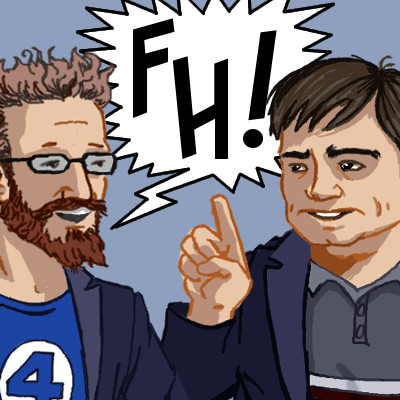Today we tackle and solve one of the eternal questions of humanity: what is truth? And what do we mean when we talk about truth and story? We have all the answers here for you guys. Seriously, we worked it out. You’re welcome.
Ross’ Notes:
- Man, I’m talking fast. But hey, I’m passionate about truth and story! Maybe listen to this at 0.75 speed. I don’t know.
- What percentage of the Bible do YOU think is factual? Tweet us a percentage mark with the #fictionhack.
- Here is the letter from theologian Karl Barth:
Basel, 18 Feb. 1965
Taken from http://www.faith-theology.com/2006/01/creation-and-evolution-letter-from.html
Dear Christine,
You have had to wait a terribly long time for an answer to your letter of 13 Dec.—not because of indifference, for I am sincerely interested in your welfare, and in that of your mother and sisters, and am always pleased to have good news from Zollikofen [near Bern, Switzerland].
Has no one explained to you in your seminar that one can as little compare the biblical creation story and a scientific theory like that of evolution as one can compare, shall we say, an organ and a vacuum-cleaner—that there can be as little question of harmony between as of contradiction?
The creation story is a witness to the beginning or becoming of all reality distinct from God in the light of God’s later acts and words relating to his people Israel—naturally in the form of a saga or poem. The theory of evolution is an attempt to explain the same reality in its inner nexus—naturally in the form of a scientific hypothesis.
The creation story deals only with the becoming of all things, and therefore with the revelation of God, which is inaccessible to science as such. The theory of evolution deals with what has become, as it appears to human observation and research and as it invites human interpretation. Thus one’s attitude to the creation story and the theory of evolution can take the form of an either/or only if one shuts oneself off completely from faith in God’s revelation or from the mind (or opportunity) for scientific understanding.
So tell the teacher concerned that she should distinguish what is to be distinguished and not shut herself off completely from either side.
My answer comes so late because on the very day you wrote, 13 Dec., I had a stroke and had to spend several weeks in the hospital.
With sincere greetings which you may also pass on to your mother and sisters,
Yours,
Uncle Karl
- I was always curious as to why it is The Picture of Dorian Grey, not the Portrait. Not sure why Wilde made that decision, but he was was a genius, I don’t question, only seek to understand.
- The line from the preface I’m referencing reads, “There is no such thing as a moral or an immoral book. Books are well written, or badly written. That is all.” And, as I say, he goes on to write a startlingly moral book. Again, Wilde is so complex, and he understood truth and story as meaning something different to what we’re talking about here, that there were any number of reasons why he may have written what he did. One that I didn’t bring up was that he thought this was true. Again, author’s aren’t always the best people to talk to about their own work, or how it should be purposed.
- The Star Trek: The Next Generation episodes I’m referencing are Descent I & II, from seasons 6 and 7.
- I’m thinking of making t-shirts that say “You Can’t Live On Crack”.
- That G. K. Chesterton quote in context (emphasis mine):
Literature and fiction are two entirely
The full short essay is available at: http://www.gkc.org.uk/gkc/books/penny-dreadfuls.html
different things. Literature is a luxury; fiction is a necessity.
A work of art can hardly be too short, for its climax is its merit.
A story can never be too long, for its conclusion is merely
to be deplored, like the last halfpenny or the last pipelight.
And so, while the increase of the artistic conscience tends
in more ambitious works to brevity and impressionism, voluminous
industry still marks the producer of the true romantic trash.
There was no end to the ballads of Robin Hood; there is no end
to the volumes about Dick Deadshot and the Avenging Nine. These two
heroes are deliberately conceived as immortal.

